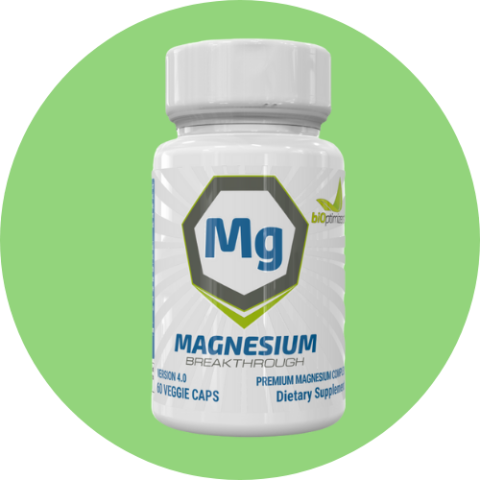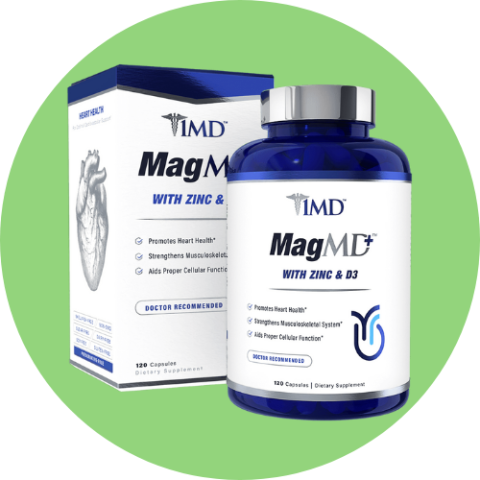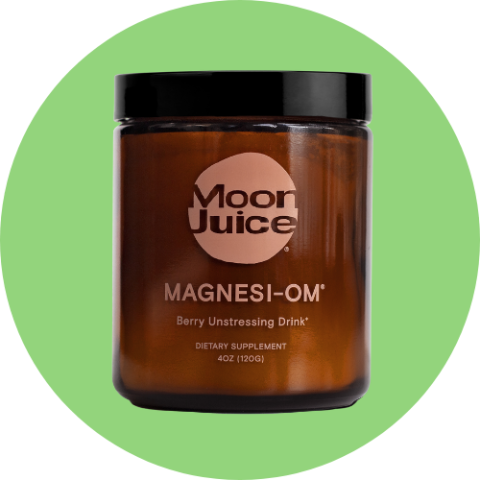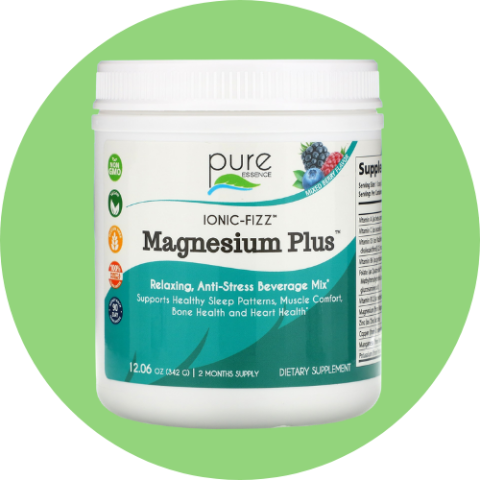6 Warning Signs & Symptoms You Have Low Magnesium: Complete Guide 2024
By Vanessa Richards
January 10, 2024 • Fact checked by Dumb Little Man
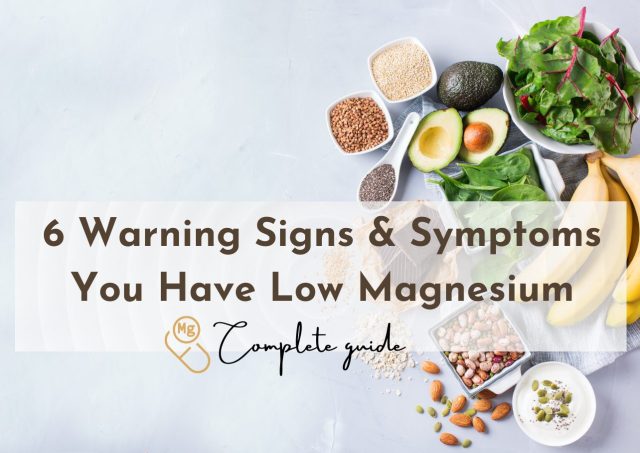
Magnesium is a mineral that is essential for human health. It plays a role in many vital bodily functions.
When your magnesium levels are low, you may experience a variety of symptoms. And not all symptoms of magnesium deficiency are normal.
Read along as we discover the signs and symptoms of low magnesium levels, as well as its causes and treatments.
Low Magnesium Symptoms: What is Magnesium Deficiency?
Magnesium is vital for human health, and yet it’s estimated that up to 80% of Americans are deficient in this important nutrient. It plays a role in over 300 biochemical reactions in the body, including energy production, muscle contractions, and blood sugar control.
Magnesium also helps to keep bones strong and promotes healthy skin and hair. A lack of magnesium can lead to a number of health problems, including fatigue, muscle cramps, anxiety, and migraines.
It helps the body process and use other important vitamins and minerals, such as calcium, phosphorus, and sodium. While magnesium is found in many foods, including dark leafy greens, nuts, seeds, and whole grains, most people do not get enough of this essential nutrient through diet alone.
6 Symptoms of Low Magnesium
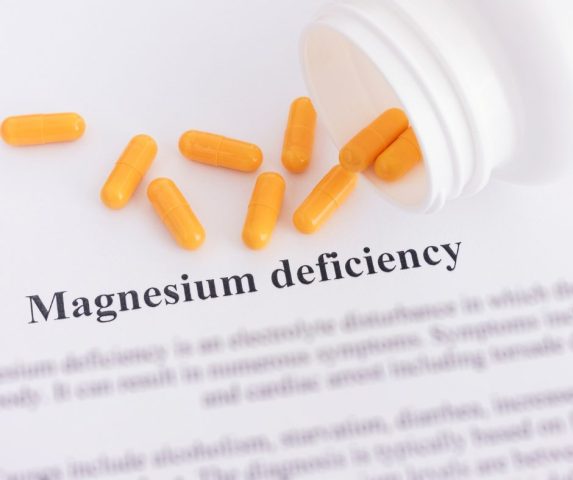
Most people are not at risk for magnesium deficiency because it is found in a variety of foods. However, certain groups of people may be more likely to experience low magnesium levels, including those with gastrointestinal disorders, type 2 diabetes, and chronic kidney disease. Symptoms of magnesium deficiency can include:
#1 Muscle cramps or spasms
Muscle cramps or spasms are one of the most common symptoms of low magnesium. Magnesium is required for muscle contraction and relaxation, so when levels are low, muscles may contract involuntarily or spasm. This can cause pain, stiffness, and difficulty moving the affected muscle. In severe cases, low magnesium may cause muscle weakness and paralysis.
#2 Tiredness and Persistent fatigue
When you don’t have enough magnesium in your body, it causes fatigue. Magnesium is important for the proper functioning of muscles, including the heart. It helps to convert blood sugar into energy and regulates blood pressure. A lack of magnesium can also lead to anxiety, depression, and trouble sleeping. The recommended daily allowance for magnesium is 400 mg for adults.
#3 Osteoporosis
Low magnesium levels can contribute to osteoporosis in a number of ways. First, magnesium is necessary for the absorption and utilization of calcium. Without adequate magnesium, calcium cannot be properly utilized by the body and may instead contribute to the calcification of soft tissues.
Additionally, magnesium is necessary for the proper formation and maintenance of bone. Low magnesium levels can therefore lead to a decrease in bone density and an increased risk for fractures.
Besides this, magnesium plays a role in the regulation of hormone levels, including estrogen. Estrogen is important for the health of bones, and subclinical magnesium deficiency can lead to a decrease in estrogen levels, which can further contribute to osteoporosis.
#4 High blood pressure
Magnesium is an important mineral for the proper functioning of the body. It helps to maintain normal blood pressure and reduces the chance of cardiovascular disease. Low magnesium levels can cause high blood pressure leading to heart disease. Magnesium supplements can help to lower blood pressure.
#5 An irregular heartbeat (Arrhythmia)
Now that we know how magnesium affects the heart, let’s take a look at how low magnesium can cause an irregular heartbeat.
Magnesium is responsible for keeping the heart’s electrical system functioning properly. When magnesium levels are low, this can cause the electrical system to become unbalanced, which can lead to an irregular heartbeat.
Firstly, low magnesium can cause the heart to beat too fast (tachycardia). Secondly, low magnesium can cause the heart to beat too slowly (bradycardia).
#6 Asthma
Magnesium deficiency can cause asthma. One is by causing the smooth muscle in the airways to constrict, which makes it difficult to breathe. Moreover, it can cause inflammation in the airways, making it even more difficult to breathe. Asthma is a chronic condition that can be serious, so it is important to make sure that you are getting enough magnesium in your diet.
Causes of Low Magnesium
There are a variety of things that can lead to low magnesium levels. Some causes are more common than others.
One potential cause is poor diet. If you don’t consume enough magnesium rich foods, it can lead to deficiencies. This is especially true if you eat a lot of processed foods, as they often lack magnesium.
Certain medical conditions can also lead to low magnesium levels. For example, gastrointestinal disorders like Crohn’s disease can interfere with the absorption of magnesium from food. Kidney problems can also cause magnesium levels to drop, as the kidneys play a role in excreting excess magnesium from the body.
Besides this, certain medications can also cause magnesium levels to decline. Diuretics, for example, can lead to magnesium loss through increased urination. Some antibiotics can also cause problems, as they can kill the helpful gut bacteria that help with magnesium absorption.
Finally, certain lifestyle factors can also contribute to magnesium deficiency symptoms. Excessive alcohol consumption, for example, can lead to magnesium deficiencies.
Diagnosing Low Magnesium Levels
When it comes to diagnosing magnesium deficiency, it can be tricky because the symptoms are often nonspecific, which means they can mimic other disorders. A blood test is the most reliable way to diagnose a magnesium deficiency. However, blood tests may not be able to tell you how severe the deficiency is or what’s causing it.
Treatment for Magnesium Deficiency

Magnesium deficiency can lead to conditions like chronic diarrhea and celiac disease. There are multiple options to treat magnesium deficiency. Typically, doctors recommend taking magnesium supplements. These are available in various forms, including tablets, capsules, liquids, and powders.
However, there are multiple medications and natural remedies to help people with magnesium deficiency and other health conditions. Let’s discuss in detail!
Natural Remedies
Summary magnesium deficiency due to less dietary intake is uncommon in healthy people. There are different ways to increase your magnesium levels through diet containing magnesium citrate. Some foods with high magnesium status are:
- Dark leafy greens like spinach
- Beans and legumes
- Peanut butter
- Nuts and seeds
- Whole grains
- Leafy green vegetables
- Avocados
- Bananas
- Dark chocolate
- Edamame
- Rice
- Yogurt
- Chicken breast
Medications
So, how much magnesium is essential when it comes to recommended dietary allowance? And how medications can help increase magnesium level. A lot of prescriptions like diuretics and proton-pump inhibitors can severely affect magnesium disaster and hypomagnesemia.
Magnesium use the same mechanism and processing system in the body for their gastrointestinal absorption, assimilation, and end. This illustrates that when one or more drug is utilized there is a normal bet of correspondence with the magnesium status.
Thusly the effect of the medicine may be extremely influenced by magnesium (e.g., magnesium, calcium, and zinc can block the gastrointestinal ingestion of anti-microbial prescription enemy of disease specialists.
Simultaneously, the physiological capacity of minerals, for instance, magnesium may be debilitated by a drug (e.g., diuretics impel renal magnesium setback).
In the treatment of the absence of magnesium supplements with normally bound magnesium salts are proposed, for instance, magnesium citrate or gluconate. similarly, mineral water with a high concentration of magnesium (>100 mg magnesium per liter) is a respectable wellspring of magnesium that adds to the everyday magnesium supply.
Supplements
A magnesium supplement is a dietary supplement that contains magnesium, a mineral that is important for many bodily functions. These dietary supplements can help prevent many chronic diseases such as hungry bone syndrome and other health issues. Let’s discuss some of the most common supplements!
6 Best Magnesium Supplements
| Product | Key Feature |
|---|---|
| Top Consumer's Choice | |
| Best Supplement for Cardiovascular Health | |
| Easiest Magnesium Intake | |
| Best Relaxant Spray | |
| Cellular Restoration | |
| Improve Cell Health |
1. Top Consumer’s Choice: Magnesium Breakthrough
If you’re looking for a magnesium supplement that can help you breakthrough your health goals, look no further than Magnesium Breakthrough. This unique formula is designed to help your body absorb and utilize magnesium more efficiently, so you can experience the benefits of this important mineral.
The Magnesium Breakthrough supplement is formulated with a blend of 7 different forms of magnesium including citrate and glycinate, which have both been shown to be highly bioavailable forms of magnesium.
They also added vitamin B6 to formula, which further enhances magnesium absorption. This potent combination can help support energy levels, muscle function, nervous system health, and more. Additionally, Magnesium Breakthrough contains no fillers or artificial ingredients- just pure, potent magnesium.
Shop at Magnesium Breakthrough Official Website.
Full Article: Magnesium Breakthrough Reviews: Does it Really Work?
2. Best Supplement for Cardiovascular Health: 1MD MagMD Plus
Do you often feel fatigued or anxious? Are you struggling to maintain a healthy lifestyle? If so, 1MD Nutrition MagMD Plus is the perfect supplement for you! This magnesium supplement is clinically proven to help improve cardiovascular health and prevent heart disease.
It will keep your heart healthy by helping to regulate blood pressure and maintain a healthy heart rhythm. It also helps to prevent coronary artery disease and can reduce the risk of stroke.
Besides containing magnesium, the supplement also contains zinc and vitamin D3 to promote coordination in heart. It also aids in eliminating true magnesium deficiency by increasing calcium absorption to enhance bone health.
Shop at 1MD MagMD Plus Official Website.
3. Easiest Magnesium Intake: Easy Relief Magnesium
Looking for an easy and convenient way to get your magnesium intake? Here comes the EasyRelief Magnesium spray. This spray is designed to make it easier than ever to get the magnesium you need, in a form that your body can easily absorb.
This spray targets the cardiovascular health and aims to eliminate the risk factor for any chronic disease. Moreover, it helps in treating early signs of magnesium deficiency. It is reliable for people who cannot take oral magnesium supplements. You can spray this at least 40 times a day. It also supports blood pressure.
EasyRelief Magnesium is the perfect solution for those looking for an easy and convenient way to get their daily dose of magnesium. It is for maximum absorption, so you can be sure you’re getting the most bang for your buck.
Shop at Easy Relief Official Website.
4. Best Relaxant Spray: Activation EASE
When it comes to the most effective relaxant spray for reducing stress and tension, Activation Ease Magnesium will not disappoint you.
This magnesium spray is loaded with essential nutrients that help to ease muscle pain, tension headaches, and cramps. Simply spray on the affected area and let the power of magnesium work its magic.
Using this spray regularly can enhance calcium absorption. The bottle is filled with 100% iMCH and all-natural magnesium sulfate. Moreover, the spray doesn’t cause burning or stinging. The best thing is that it won’t leave any residue on your skin.
Shop Activation EASE at Amazon.
5. Cellular Restoration: Moon Juice Magnesi-Om
Moon Juice Magnesi-Om is a incredibly high-dose supplement designed to help restore cells and improve overall function. Magnesium is an essential mineral that plays a role in many bodily processes, such as energy production, muscle contraction, and nerve function.
Besides this, it contains L-Theanine for offering different health benefits. It also enhances alpha-wave electricity within your brain.
It’s also known for its calming effects, making it a great way to combat stress and anxiety. Moon Juice Magnesi-Om Powder Supplement is easy to take and can be added to your favorite beverage.
Shop Moon Juice Magnesi-Om at Amazon.
6. Improve Cell Health: Pure Essence Ionic-Fizz Magnesium Plus
Introducing Pure Essence Ionic Fizz Magnesium Plus, the magnesium drink powder that does more than just improve cell health!
This powerful little powder is also packed with vitamins and minerals that work together to help tone and support your muscles, help you better absorb calcium, and promote healthy digestion.
Plus, the delicious flavor means you’ll actually enjoy drinking it! Simply add a scoop to water or your favorite beverage and watch as it quickly fizzes and dissolves, leaving you with a refreshing drink that’s perfect for post-workout or any time of day.
Shop at Ionic-Fizz Magnesium Plus Official Website.
>>Related Article: 9 Best Magnesium Supplement • Top Magnesium Products of 2024
Conclusion
Magnesium is an essential mineral for human health and one that is often overlooked. Deficiencies in magnesium can lead to a variety of unpleasant symptoms. Which is why it’s important to be aware of the signs and symptoms of low magnesium levels.
If you are experiencing any of these issues, it might be worth getting your magnesium levels checked out by a doctor.
By increasing your intake of magnesium-rich foods or taking a supplement if needed, you may be able to resolve some of these uncomfortable symptoms and feel better overall. Here’s our top recommendation for the best magnesium supplement.
Magnesium Breakthrough is both an effective and affordable supplement to meet your magnesium requirements. Look no further than Magnesium Breakthrough. This supplement provides your body with the magnesium it needs to function properly, helping you to maintain a healthy lifestyle.
Click here to get Magnesium Breakthrough Supplement at Discounted Price.
Low Magnesium Symptoms FAQs
How will you feel when your body lacks enough magnesium?
You might feel weak, tired, or have cramps in your muscles. You may also experience anxiety, irregular heartbeat, and high blood pressure. Magnesium is essential for many processes in the body, including muscle function, energy production, and nutrient metabolism. A magnesium deficiency can disrupt these processes and lead to health problems.
Who are the most at risk when it comes to magnesium deficiency?
Magnesium deficiency is most common in people who have a diet that is low in magnesium-rich foods, such as leafy green vegetables, legumes, nuts, and seeds.
People with gastrointestinal conditions, such as Crohn’s disease and celiac disease, are also at risk for magnesium deficiency because they may have difficulty absorbing the nutrient from food. People with chronic stress or anxiety may also be at risk for magnesium deficiency, as the body uses up stores of magnesium when it is under stress.
How long does it take to treat magnesium deficiency?
It usually takes around two to three weeks of magnesium supplementation to see an improvement in symptoms. Some people may need to continue treatment for longer periods of time. Speak with your doctor to determine the best course of treatment for you. Magnesium deficiency can be a chronic condition, so it is important to speak with your doctor about the best way to manage it.
Vanessa Richards
Vanessa is a mom of 3 lovely children and a software geek. Outside of her career as a health and wellness instructor. She enjoys writing and researching on topics such as finance, software, health and culinary.

